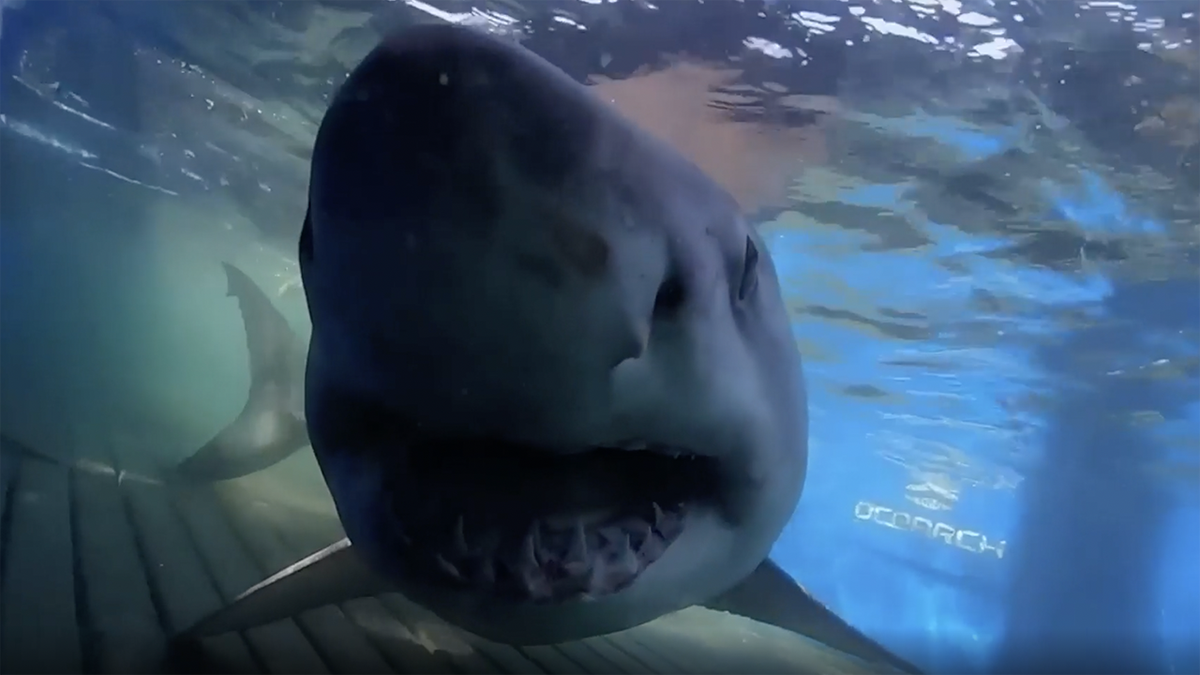North Carolina's Outer Banks greeted by 13-foot great white shark named 'Breton'
Researchers from the marine science non-profit OCEARCH are tracking a 13-foot great white shark named "Breton" off the coast of North Carolina this week.

A massive 13-foot, 1,437-pound great white shark was detected off the coast of North Carolina this week as it makes its annual voyage north for the summer months.
Breton, which the marine science non-profit OCEARCH first started tracking in September 2020, pinged near Cape Hatteras in the Outer Banks on Tuesday morning.
The research group has been tracking the shark since tagging it off the coast of Cape Breton Island in Nova Scotia two-and-a-half years ago.
Breton was in almost the same exact spot this time last year. The shark made a trip around Bermuda last May, traveled to Canada's Gulf of St. Lawrence for last year's summer months, then looped southward to the Bahamas in the fall before traveling up the East Coast again to the Outer Banks.
The adult great white is one of several sharks that OCEARCH is tracking off the coasts of North and South Carolina this month.
Simon, a nearly 9-foot great white, was detected just north of Breton on Tuesday. Georgia, an 8-foot tiger shark, pinged off North Myrtle Beach in South Carolina, while a 12-foot tiger shark named Jax pinged north of Charleston.
As sharks make their journey north toward cooler waters for the summer, they hang out around the continental shelf, a shallow terrace that extends off the coast of the Carolinas about 35 miles.
Researchers from OCEARCH will conduct Expedition Northbound next month, collecting data on the 88 great white sharks that the non-profit has tagged in the western North Atlantic.
White sharks, known by most Americans as the quintessential apex predator, can grow to be about 20 feet long and weigh over 4,000 pounds. They live in temperate and subtropical waters around the world, migrating seasonally to their preferred temperature range of roughly 50 to 80 degrees.






















